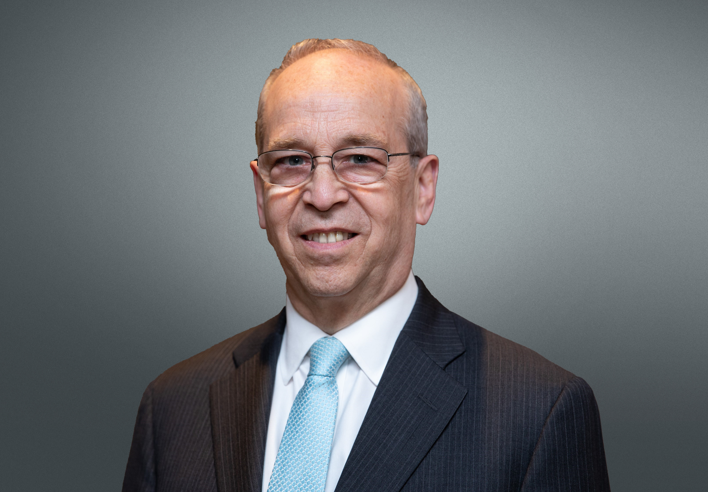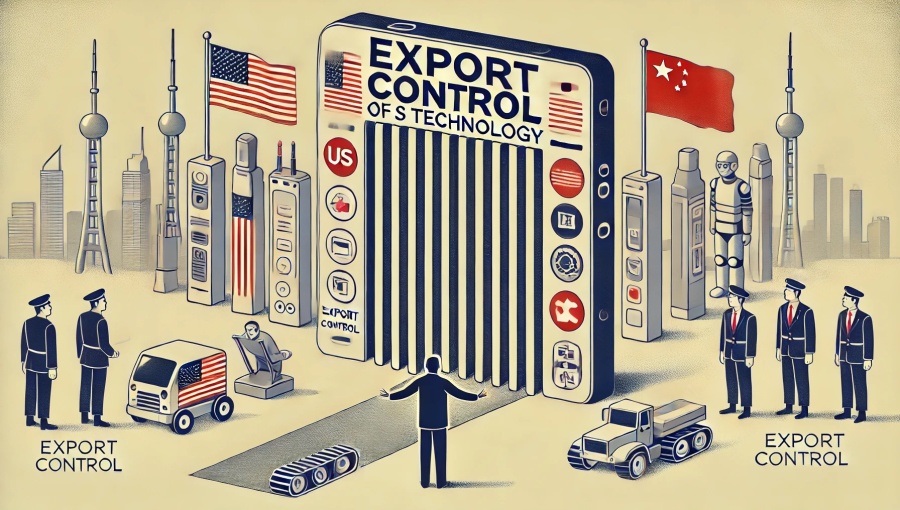Daniel Russel is vice-president for international security and diplomacy at the Asia Society Policy Institute. He previously served as special assistant to U.S. President Barack Obama and Assistant Secretary of State for East Asian and Pacific affairs at the U.S. State Department from 2013 to 2017. He was a major figure in the Obama administration's "pivot towards Asia" strategy.
In a recent interview with James Chau of China-US Focus in Tokyo, Daniel Russel shares his concerns on U.S.-China rivalry in new technologies and its impact on bilateral relations and the globe as well.

James Chau:
Daniel Russel, you are a longtime foreign service officer who went on to work in the very heart of power — in the White House, working under President Barack Obama — and now bring that knowledge into your current role at the Asia Society Policy Institute. With all the different hats you’ve worn, the perspectives you’ve acquired and the seats you’ve occupied over the decades in different moments of history, what do you make of the state of today’s world and where we are?
Daniel Russel:
Well, it’s a messy world. It’s always been messy. I think that what’s really different now is the impact of critical, emerging technologies. The pace of change and the scope of change is really unprecedented and, frankly, the moment today is quite different in that respect from the time that I spent in the Obama administration, which is not all that far away. There have always been great power plays among countries. There have always been hot spots and crises, wars, famines, floods, etc. So it’s not a fundamentally different world in those terms. But I’d say in addition to the impact of critical technologies, I certainly feel a heavy sense of disappointment that the promise and the expectation of globalization, of global integration, of the ability of advanced economies to mobilize capital and mobilize technology to lift up the lives and the well-being of the developing world, has fallen so far short. Instead, it feels like we’re actually losing ground in many respects, particularly when we see the proliferation of protectionism, of isolationism, of authoritarianism and of ultra-nationalism. In some respects, you see echoes of the 1930s, and these are pretty worrisome developments.
James Chau:
Where did things not go right? If the world had all that promise held within globalization, as you described — global integration, parts of which manifested and parts of which have gone in a very, very different direction — where do you think the pivot point was?
Daniel Russel:
I don’t know that there was a single pivot point, but I think in retrospect it’s pretty clear that the sort of unfettered capitalism, the sheer market freedom, the absolute pursuit of profit, created not just huge wealth gaps but also a divide, a sense of grievance, a hollowing out of some industries, and generated backlash against globalization. We’re paying a price for that in many respects. It’s by no means limited to the United States. It’s a widespread struggle, and it wasn’t a straight-up choice. It’s not as simple as “If only we had done XYZ,” everything would have been fine. These involve huge tradeoffs and the ability of governments, or frankly, the ability of leaders, to hit the right balance between overregulating and stifling the market, and laissez faire, go for the brass ring, free market. These are difficult judgment calls, and again, the tools are limited.

James Chau:
You mentioned earlier the pace of change that technology has brought to what was once familiar in our landscape. That has now shifted dramatically. You would have thought that this technology would bring advancement, progress and assurance, but instead, we have vast segments of populations and communities who fear the change because they’re not necessarily included in the progress it can bring. Where are the United States and China in this world?
Daniel Russel:
When we look at history and see the various industrial and other transformative revolutions, the anxiety of the potential losers is a feature of those moments. So it’s no surprise that there’s public anxiety about what the impact and implications of progress and of new technology is going to be. That’s pretty standard. There are many differences, though, in the current — I think even unprecedented — nature of these critical technologies. Things are moving very fast, and the new technologies have really astonishing impacts and implications. They also have huge potential for benefiting humans. And these are not, simply, threats to human existence. These are phenomenal opportunities. We see it in medical science. We see it in education. We see it in industry. There are tremendous benefits. Some have materialized and others are potential.
I think the big issue in terms of your question about the U.S. and China is simply the level of mistrust between the two governments, and increasingly between the two societies. It’s so intense and so toxic, and we are trapped in a security dilemma where each is convinced that they’re the victim of bad intentions from the other, so there is no basis or platform for utilizing and collaborating on new technologies for the greater good.
Any tool is potentially a constructive instrument or a weapon. How it is used is a function of the human that holds it and wields it. The level of mistrust and animosity — antagonism, really — between the U.S. and China turns every tool into a weapon. It’s understandable that neither Chinese nor American leaders are comfortable forgoing the use of new technologies for defensive, or, for that matter, offensive purposes, in part because they fear that if they don’t do it first, the other side will. This is a really dangerous downward spiral. The U.S. and China are very powerful countries to begin with, armed with these new technologies. The risk profile is expanding exponentially. We have an urgent obligation to get a handle on the bilateral relationship. At the same time, we’re struggling to cope with the unknowable implications of these new technologies.
James Chau:
There are people who will listen to or read this conversation, who understand that the outcomes and the consequences ahead could be extremely serious. How can people participate more widely in shaping the future if they’re not a former assistant secretary of state for East Asian and Pacific affairs — someone who hasn’t necessarily been trained or is skilled in this career that’s been crafted over decades?
Daniel Russel:
I think there’s a basic question that everyone, certainly everyone over the age of reason, should be asking themselves: What kind of world do I want to live in? From that flows the question, what kind of community do I want to live in? And from that flows the question, what can I do to influence or shape my community, my city, my country, in the direction that I think we should go? Not because of ideology but because of the picture I have in my mind about what a healthy, comfortable and safe Planet Earth would look like. So it’s not a matter of a single career choice. It really is a challenge for both our imagination, to visualize the world we want to live in, and our character, to find ways to act and to implement that vision.
James Chau:
Sitting across from you, your face lit up when you were talking about that. And it seems to recall the days of the era you served in the Obama administration. Many people continue to associate the meaningful change that led to outcomes with Obama’s compelling and inspirational leadership. Are there any lessons that can be reapplied today, in these trying times?
Daniel Russel:
Yes, there’s a plethora of potential lessons to extract. The campaign motto of the Obama political operation was hope and change. These were not abstractions, and they weren’t mere bumper stickers. I think they’re an accurate reflection of the mindset that Obama brought to the challenge, the challenge of serving as the U.S. executive, the challenge of leading the nation. You can’t get a lot better than hope and change. Not change in the abstract but change in the spirit of making things better. Obama served as a community organizer early in his career, and as I just mentioned that there’s a direct link between the community and the investments that we’re prepared to make in our community and on the global scene. So I think that’s one lesson to take away.
